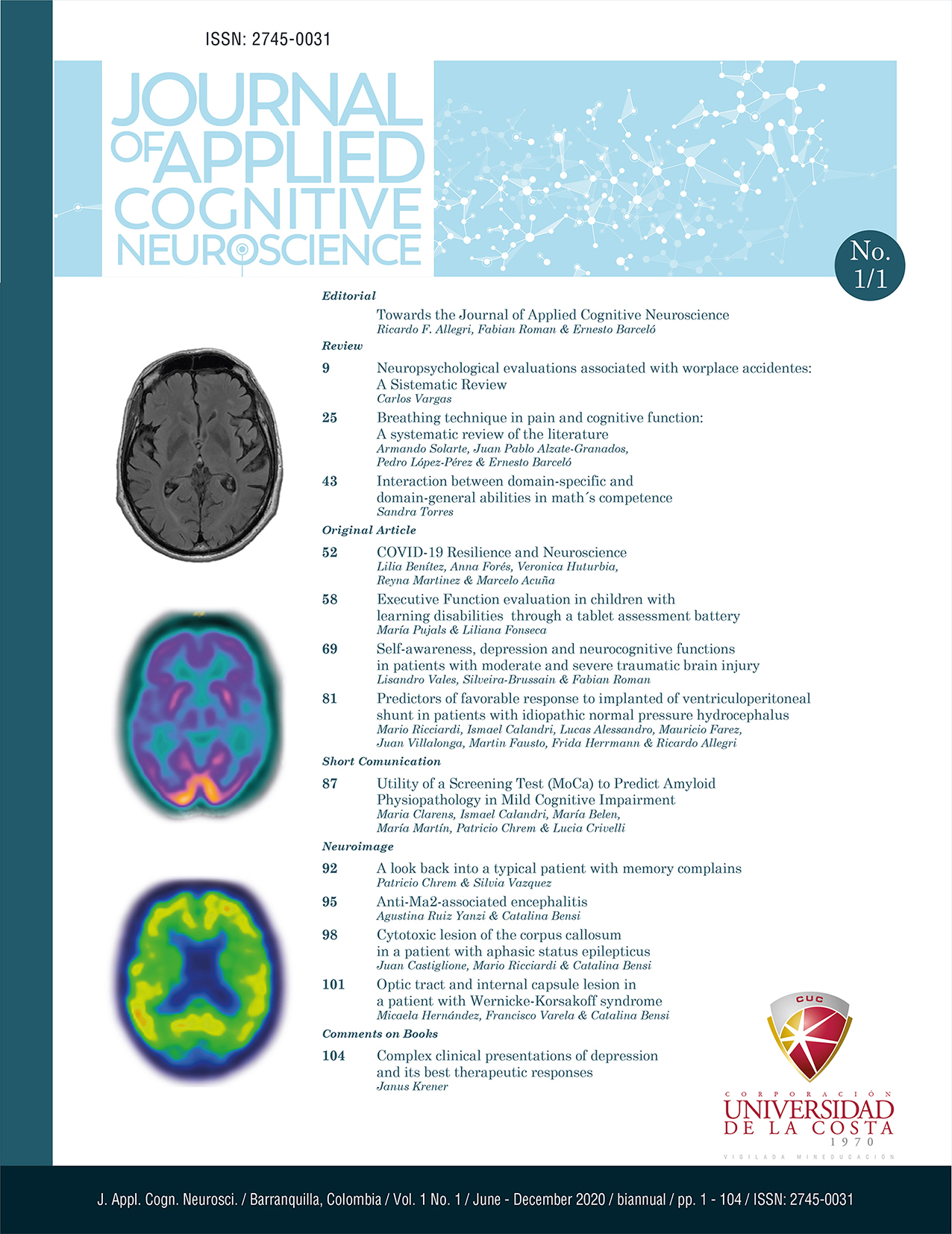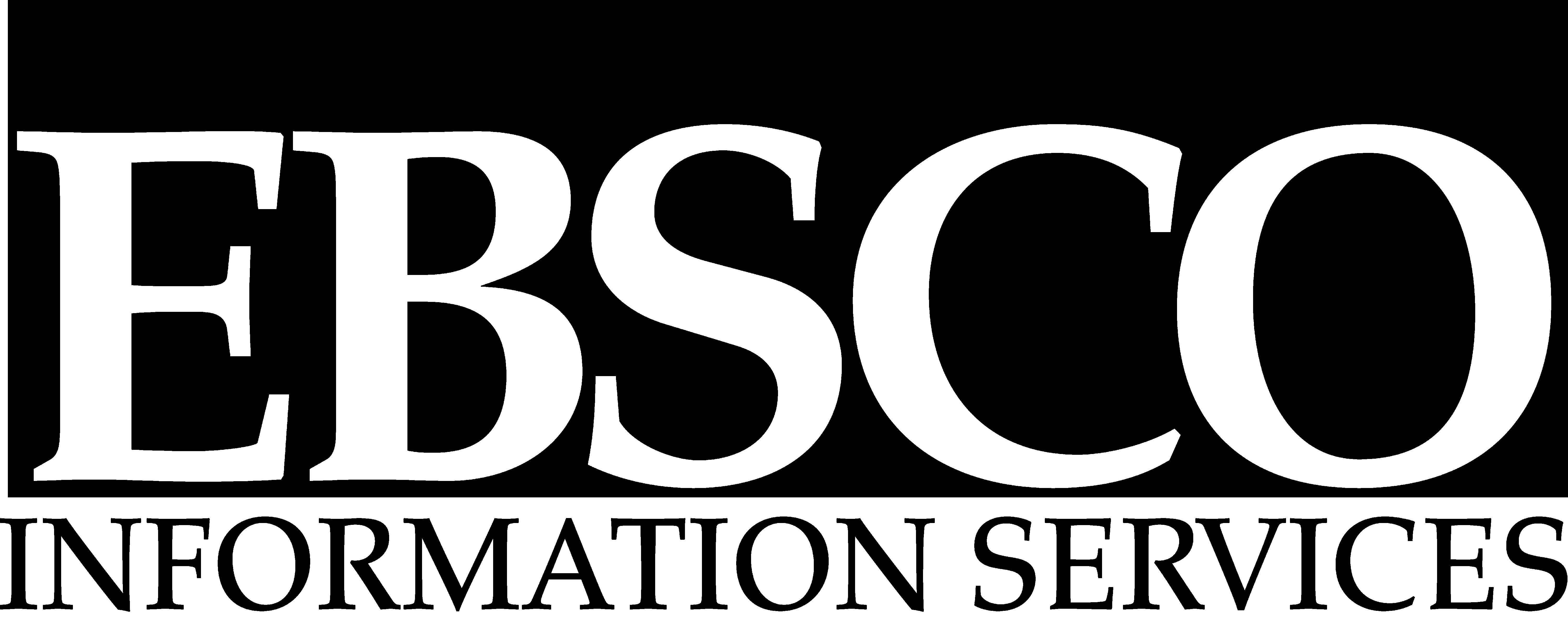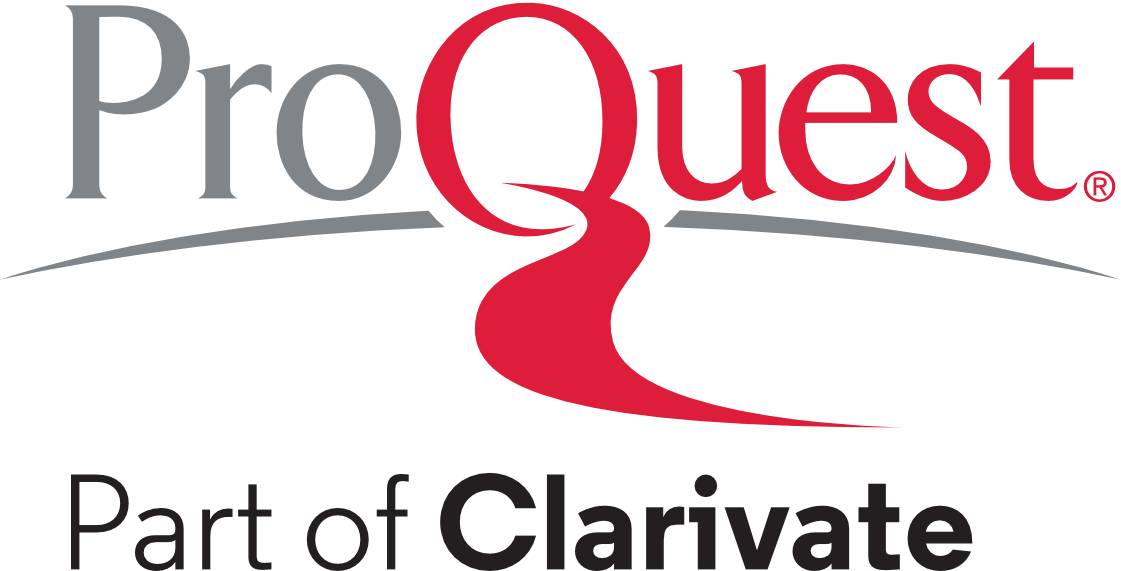Utility of a Screening Test (MoCa) to Predict Amyloid Physiopathology in Mild Cognitive Impairment
Utilidad de una prueba de cribado (MoCa) para predecir la fisiopatología amiloide en el deterioro cognitivo leve
DOI:
https://doi.org/10.17981/JACN.1.1.2020.13Keywords:
Alzheimer's Disease, Amyloid, Mild Cognitive Impairment, Neuropsychology, DementiaAbstract
Introduction: The MoCa (Montreal Cognitive Assessment) Screening test has become relevant in recent years in the screening of patients with Mild Cognitive Impairment (MCI). It is important to seek and study simple and reliable tools in clinical practices that correlate with biological markers that have been used to predict conversion from MCI to AD. Objective: To analyze the MOCA and its cognitive sub-scores and the relationship with Amyloid pathophysiology in Alzheimer’s Disease. Methodology: 32 patients with MCI were studied, they were separated according positive (n: 20) and negative (n: 12) underlying amyloid pathology. The patients performed a extensive cognitive assessment that included MoCa Test. Results: MoCa Total Scores showed significantly different results between groups (p <0.001) as well as the Memory Score (MoCa MIS), the Executive (MoCa EIS), the Attentional Score (MoCa AIS)) (p < 0.001) and the Orientation Score (MoCa OIS)) (p < 0.05) with worse performance of patients with amyloid pathophysiology. Score of MoCa a cut-off point of < 24 was established, since the diagnostic sensitivity at this point was 83% and the specificity 70%. Conclusions: The MoCa is a useful tool to differentiate biomarker status in MCI. Future studies should study this tool in the prodromal phases of the disease.
Downloads
Published
How to Cite
Issue
Section
License
Copyright (c) 2020 Journal of Applied Cognitive Neuroscience

This work is licensed under a Creative Commons Attribution-NonCommercial-NoDerivatives 4.0 International License.
You are free to:
- Share — copy and redistribute the material in any medium or format.
- The licensor cannot revoke these freedoms as long as you follow the license terms.
Under the following terms:
- Attribution — You must give appropriate credit, provide a link to the license, and indicate if changes were made. You may do so in any reasonable manner, but not in any way that suggests the licensor endorses you or your use.
- NonCommercial — You may not use the material for commercial purposes.
- NoDerivatives — If you remix, transform, or build upon the material, you may not distribute the modified material.
- No additional restrictions — You may not apply legal terms or technological measures that legally restrict others from doing anything the license permits.


 English
English
 Español (España)
Español (España)










